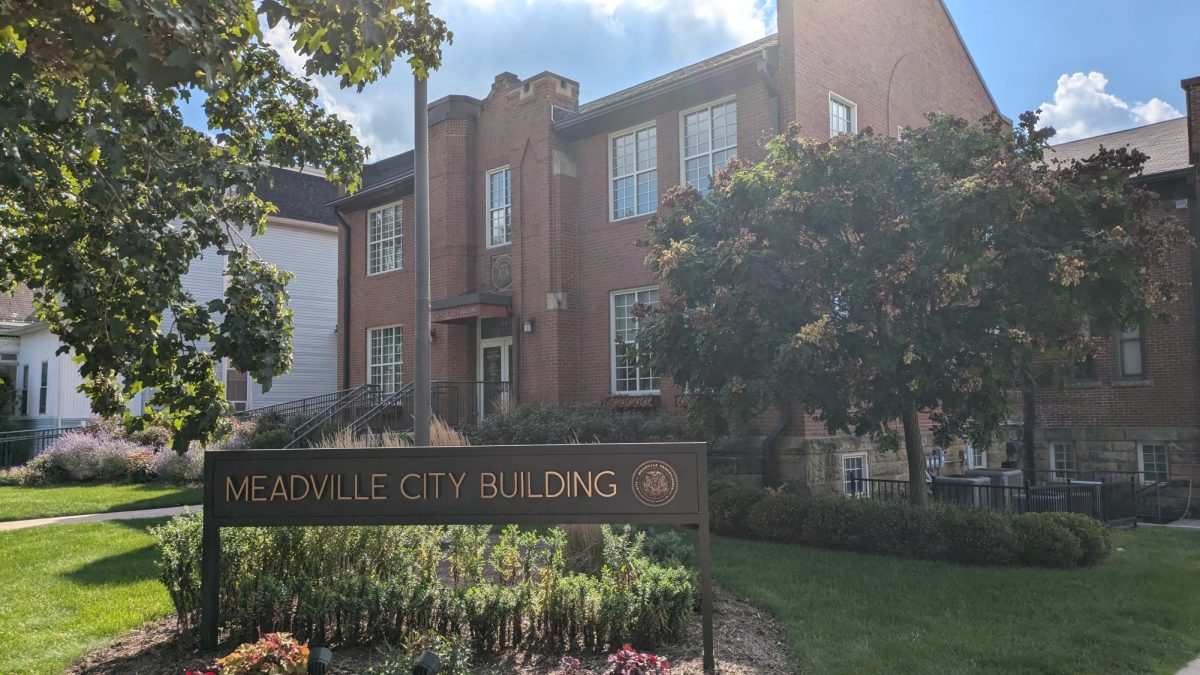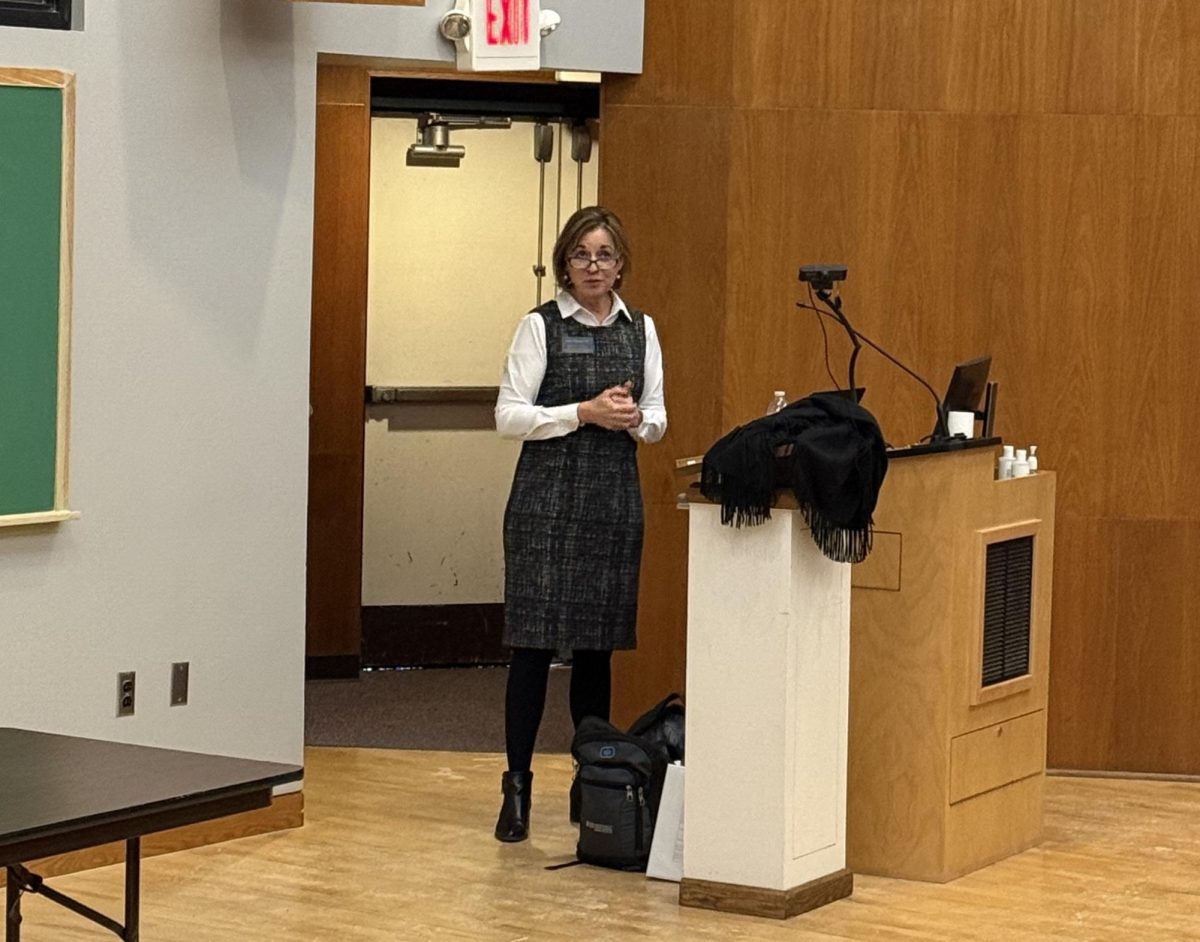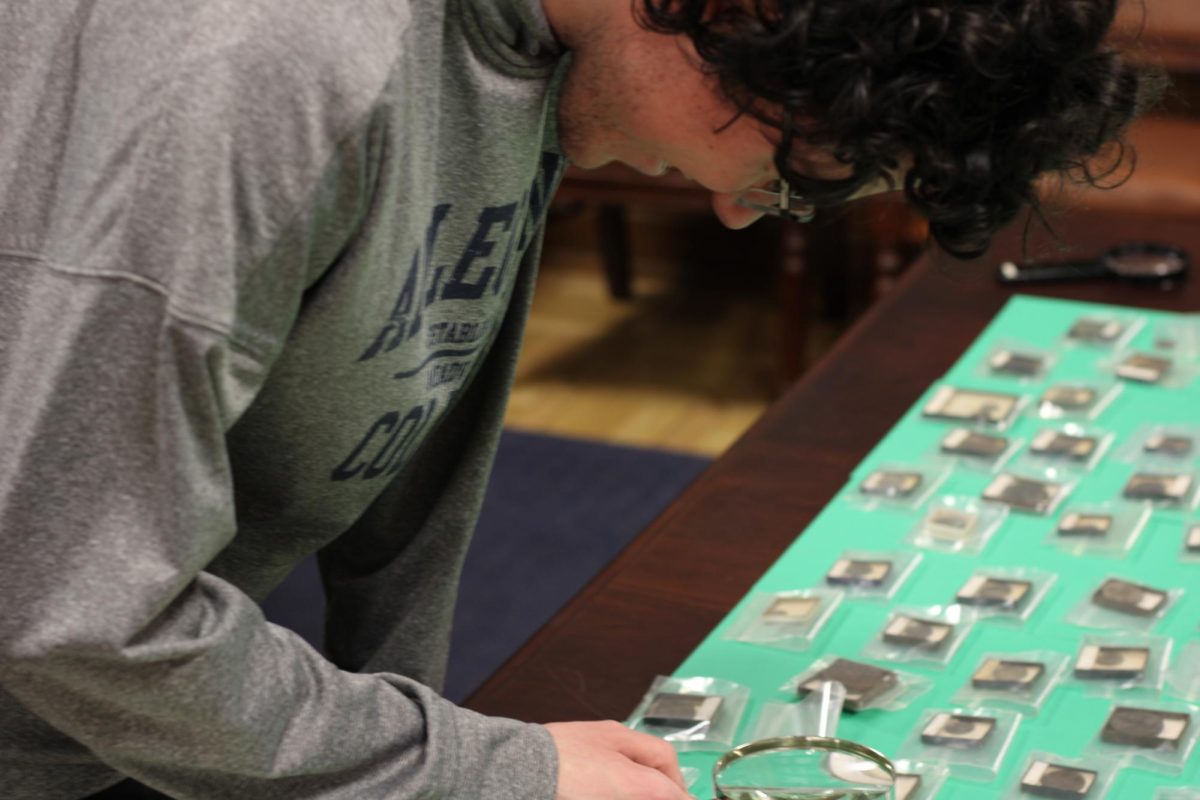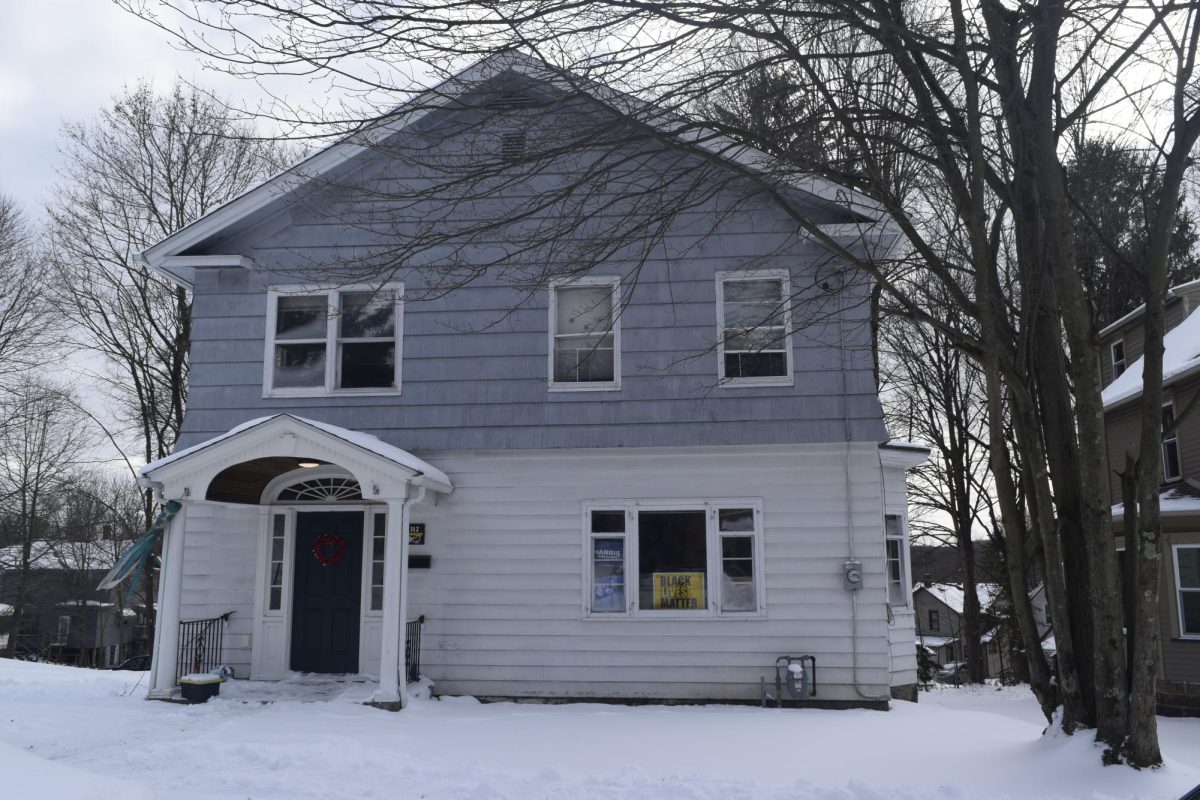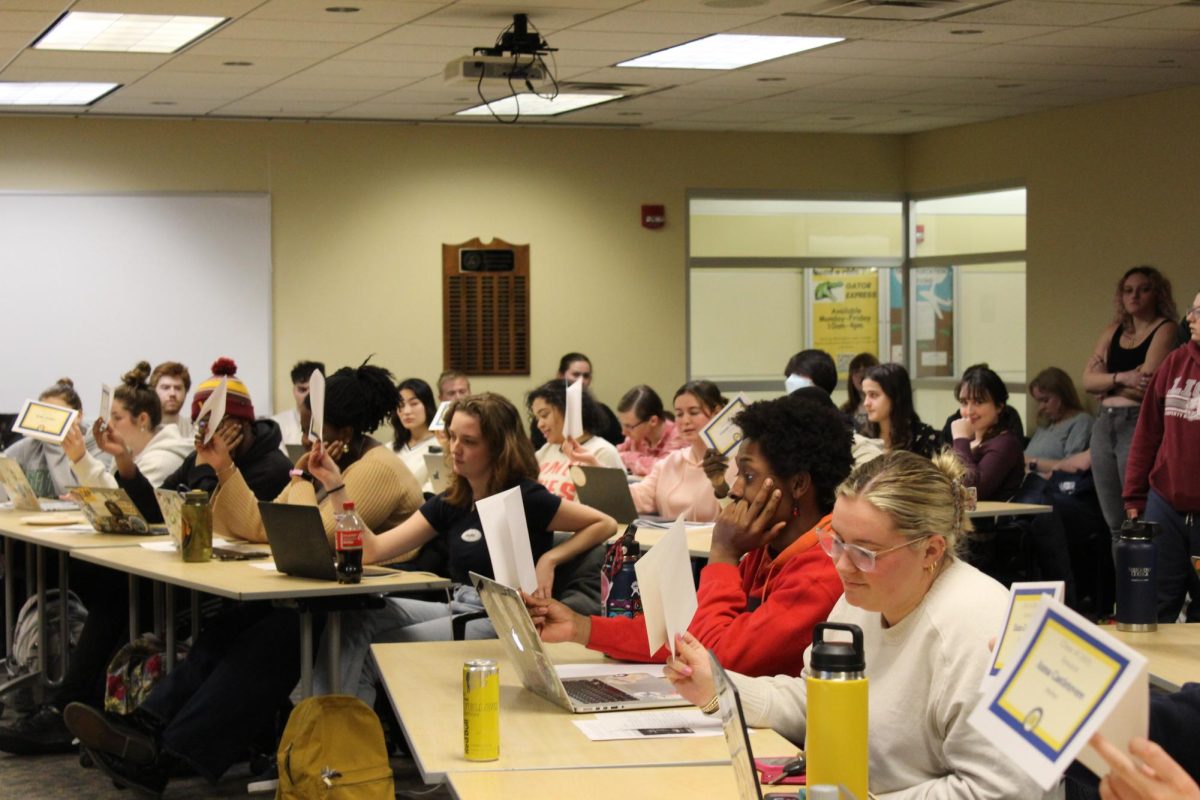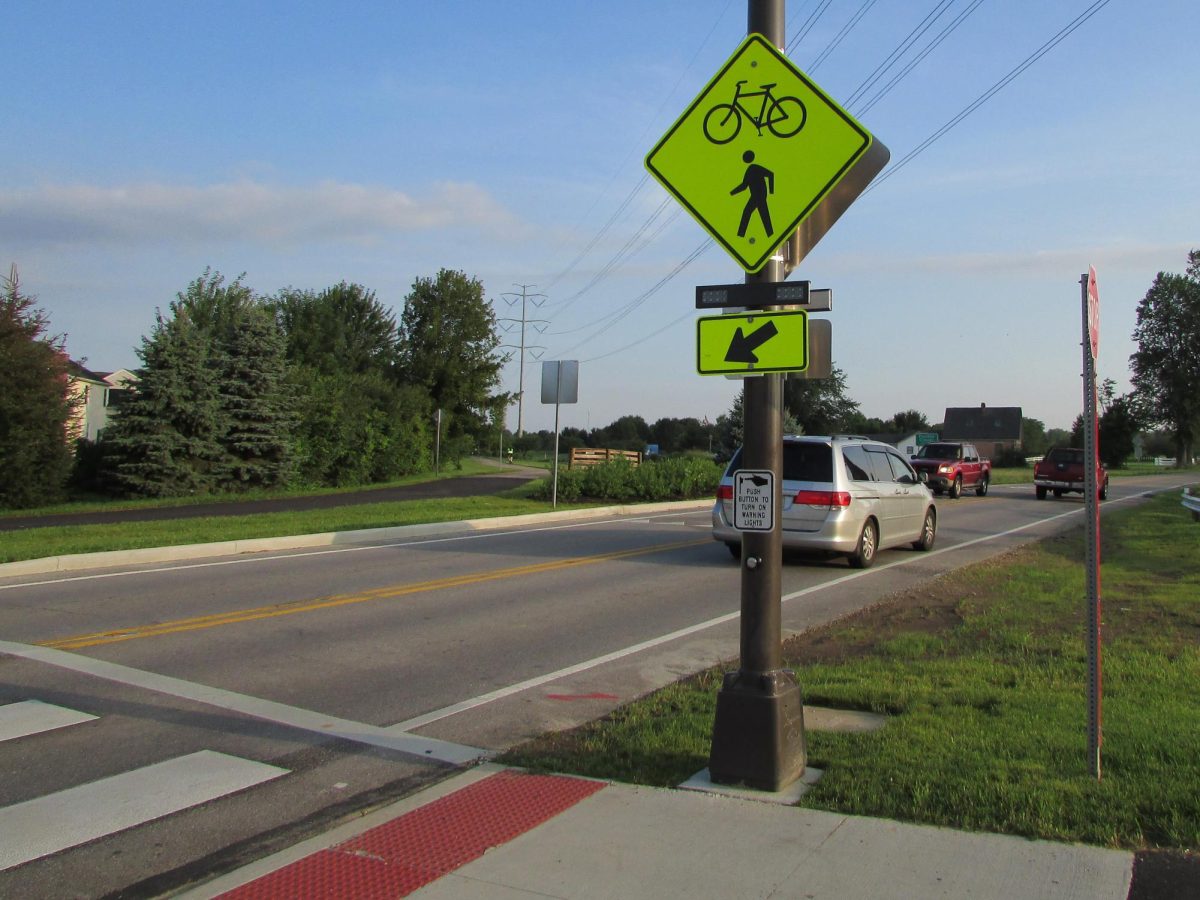Established in 1788, the city of Meadville has no shortage of old, historic buildings.
But, with climate change driving increased flooding risk and a greater number of dangerously hot days each year, many of these buildings are not equipped to handle the mounting pressures of extreme weather.
The city of Meadville is taking steps to strengthen the region’s resiliency. Most recently, this has taken the form of a partnership with Green Building Alliance as part of their Resilient Communities program.
“This program will help us achieve goals set in our Climate Action Plan for a safer, healthier, more resilient Meadville,” said City Councilmember Autumn Vogel, ’15, in GBA’s press release announcing the partnership. “Through this partnership, we’ll get much needed support to make improvements to our aging building stock, making the people of Meadville safer and more comfortable in their homes and buildings, while helping residents, community partners, and local businesses save money. It’s a win-win-win. We’re eager to get started and grateful for the opportunity.”
The three-year program will provide Meadville with assistance to “reduce energy demand, cut utility costs, and increase energy efficiency and resilience for the municipal buildings, commercial facilities, and nonprofit and educational institutions” in the region, according to GBA’s press release.
During the program’s tenure, GBA also plans to facilitate the growth of quality jobs in fields that support resiliency energy initiatives, reduce operational costs for local businesses and institutions and open doors to new financial resources by providing grant writing assistance to pursue community resilience and energy-efficiency funding opportunities.
Specializing in sustainable building design, Pittsburgh-based GBA already has several regional success stories.
“The Resilient Communities program builds on GBA’s successful work in Erie, which has logged a shared utility savings of over $17 million across 20 public-private partners since partnering with GBA,” according to the press release.
GBA will partner with both Meadville and the city of Reading in the coming years in separate editions of the Resilient Communities program. Both programs are funded by The Metropolitan Edison/Pennsylvania Electric Company Sustainable Energy Fund, a pool of money designed to advance the development of sustainable and renewable energy programs and clean air technology on a regional and statewide basis, according to the Berks County Community Foundation website.
GBA was awarded funding from the Sustainable Energy Fund prior to deciding which two locations to partner with. When GBA contacted Meadville to gauge the city’s interest in participating, Meadville City Council jumped at the opportunity.
“Meadville was in the running, and we were very motivated to make it happen, mainly because we did see that this was a way to really bring capacity to Meadville to accomplish some of the goals set in our Climate Action Plan,” Vogel said. “So, we acted with some expediency. I brought it before council and we prepared an MOU (memorandum of understanding) and entered into the MOU pretty quickly to kind of demonstrate our enthusiasm.”
Just a few weeks later, GBA selected Meadville.
Vogel said the opportunity “was not a hard sell” among councilmembers, given that the program was presented as a way to achieve some of Meadville’s Climate Action Plan goals, which had already been discussed “ad nauseam” before the plan’s adoption in 2022. Plus, Vogel said, the Resilient Communities program will cost the city nothing.
Assistant Professor of Environmental Science and Sustainability Matthew Bethurem, who also serves on the Meadville Environmental Advisory Committee, believes the Resilient Communities program will benefit Meadville by lessening vulnerabilities to climate disasters for both residents and city infrastructure.
Bethurem says climate change in Meadville manifests primarily as extreme heat events and flooding — both of which the area has already begun to experience with increasing frequency.
Situated directly on French Creek, some parts of the city — like the 5th Ward — are located in the creek’s flood plain. Historical precipitation patterns in the area involved “nice, steady, gentle” rainfall that lasted the day and was absorbed into the creek and land, Bethurem explained. But now, it is increasingly common to get rainfall that occurs in intense bursts over short periods of time, overwhelming the creek’s shores.
“That exacerbates these flooding issues that Meadville has had for a long time already,” Bethurem said. “And, of course, when you get that kind of rainfall, it can increase erosion, it can cause problems for infrastructure and things like that. But the big thing by having intense flood situations [is that] you got people’s homes and businesses that are going to be directly impacted.”
In recent years, Meadville has also experienced an increasing number of days that are 90 degrees or hotter. With many buildings not built to protect against that type of heat, an ever-growing number of residents will need to be concerned about heat-related illnesses, like heat exhaustion and heat stroke, Bethurem said.
GBA can help reduce these dangers by updating existing infrastructure to be more resilient to climate change, implementing new mitigation measures and decreasing Meadville’s overall greenhouse gas emissions, Bethurem said.
So far, GBA has held one listening session with the Meadville Area Collaborative, consisting of officials from Allegheny College, Meadville Medical Center, the City of Meadville, the school district and nonprofit community partners. Many of the concerns raised during the meeting were related to organizations “operating out of buildings that weren’t built for what they’re being used for now,” according to Vogel.
“We heard from Women’s Services, who operates a shelter out of what used to be a home,” Vogel said. “That is a different use of that building that requires different kinds of energy usage and different, kind of, constraints on the building.”
Vogel said that with more efficient buildings, nonprofits like Women’s Services and other organizations could save money on energy costs and instead use their resources in other ways that benefit the community.
Future listening sessions will aim to bring in more organizations that could benefit from the Resilient Communities program so that GBA can get a holistic understanding of stakeholder experiences, according to Vogel.
Using the information gathered in several listening sessions and working alongside a future steering team, GBA will work to ensure that the Resilient Communities program is tailored to meet Meadville’s unique needs. GBA will also hire a Meadville resident full-time to coordinate the program at the local level.
Vogel says the best way for the public to get involved with the program is to attend the Environmental Advisory Committee public meetings, which take place on the third Thursday of the month at 5:30 p.m. in the City Building.
“We’re excited about the capacity this brings to Meadville to be able to curb some of our greenhouse gas emission, but also to save money for organizations and businesses that can certainly spend it in other places,” Vogel said. “We’re eager for this.”
Correction: This story has been updated to reflect Autumn Vogel’s correct graduation year. The previous story said that she graduated in 2015.




